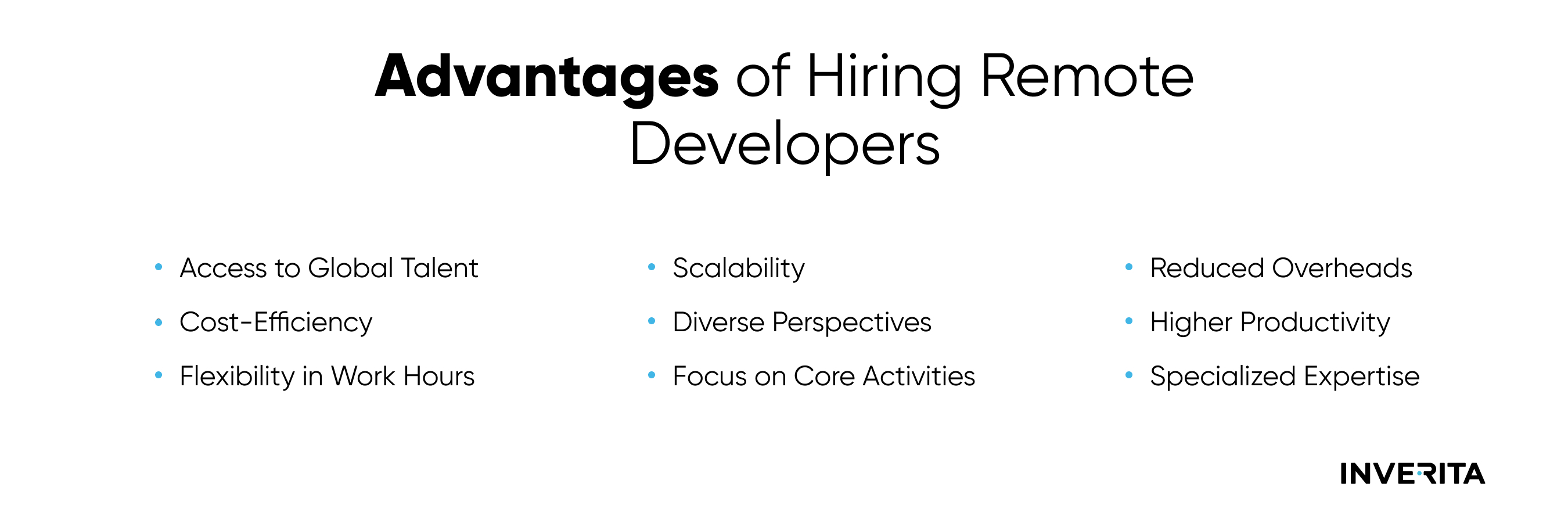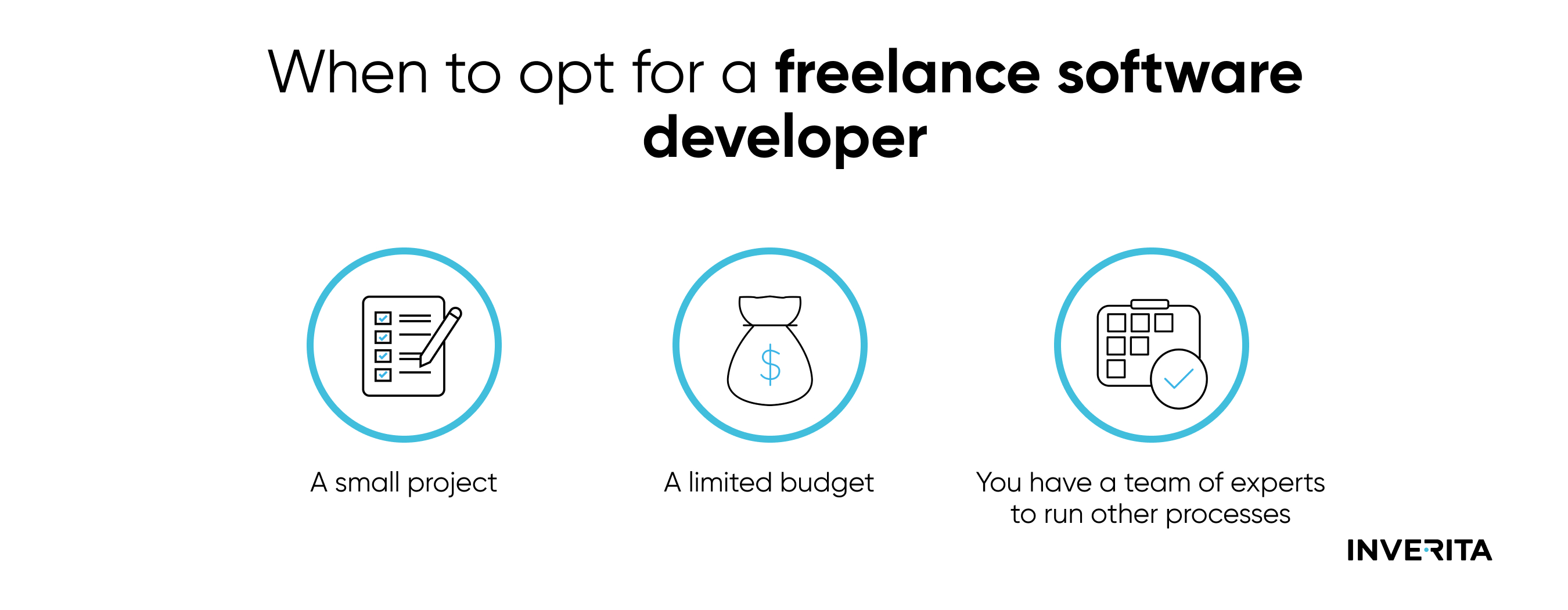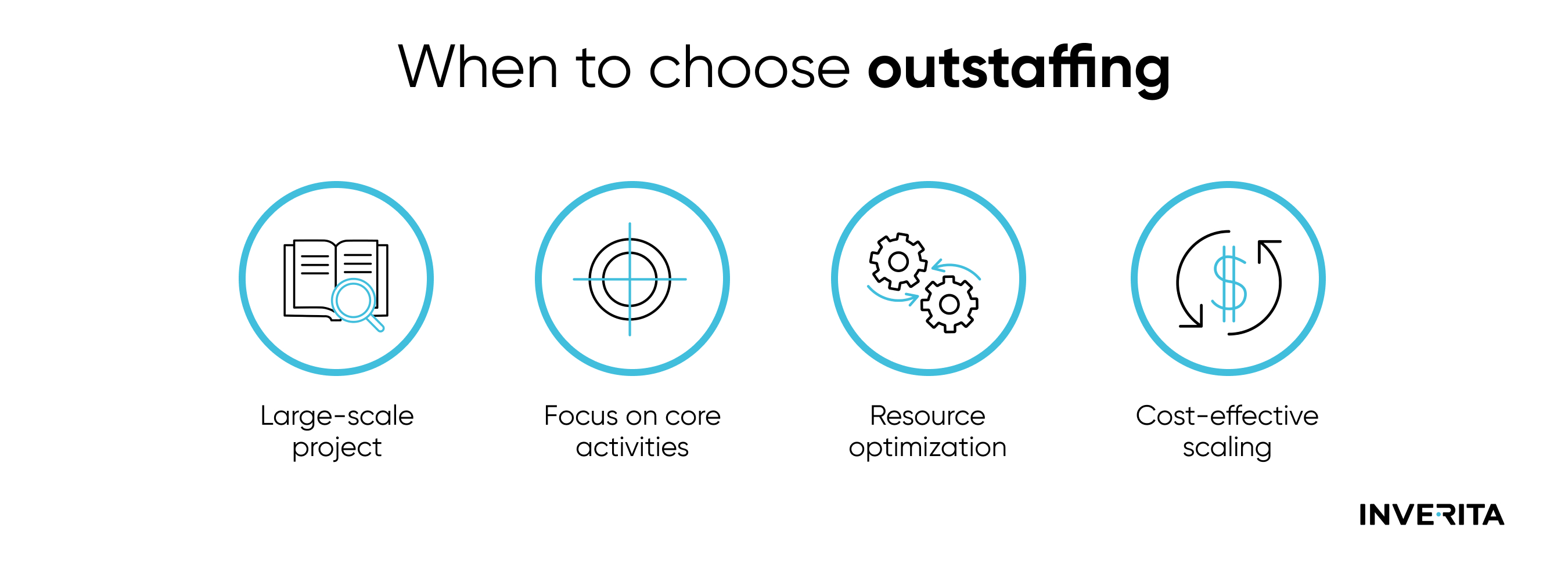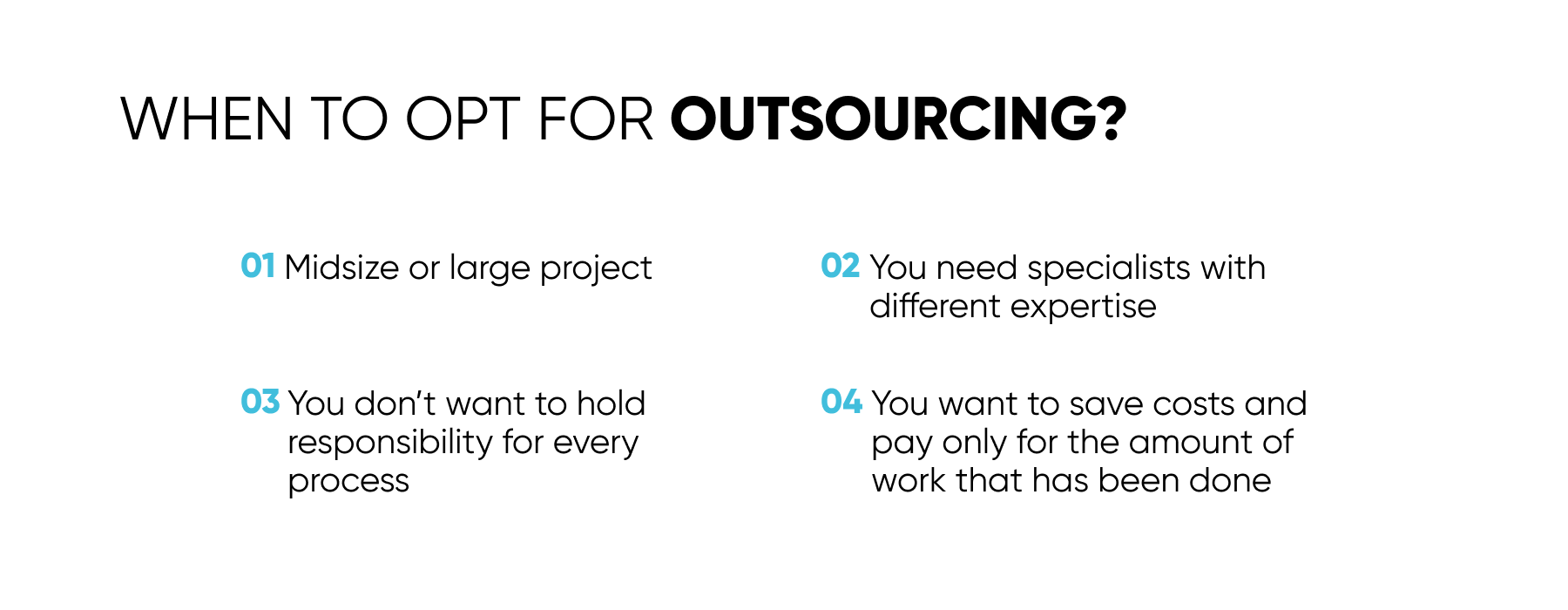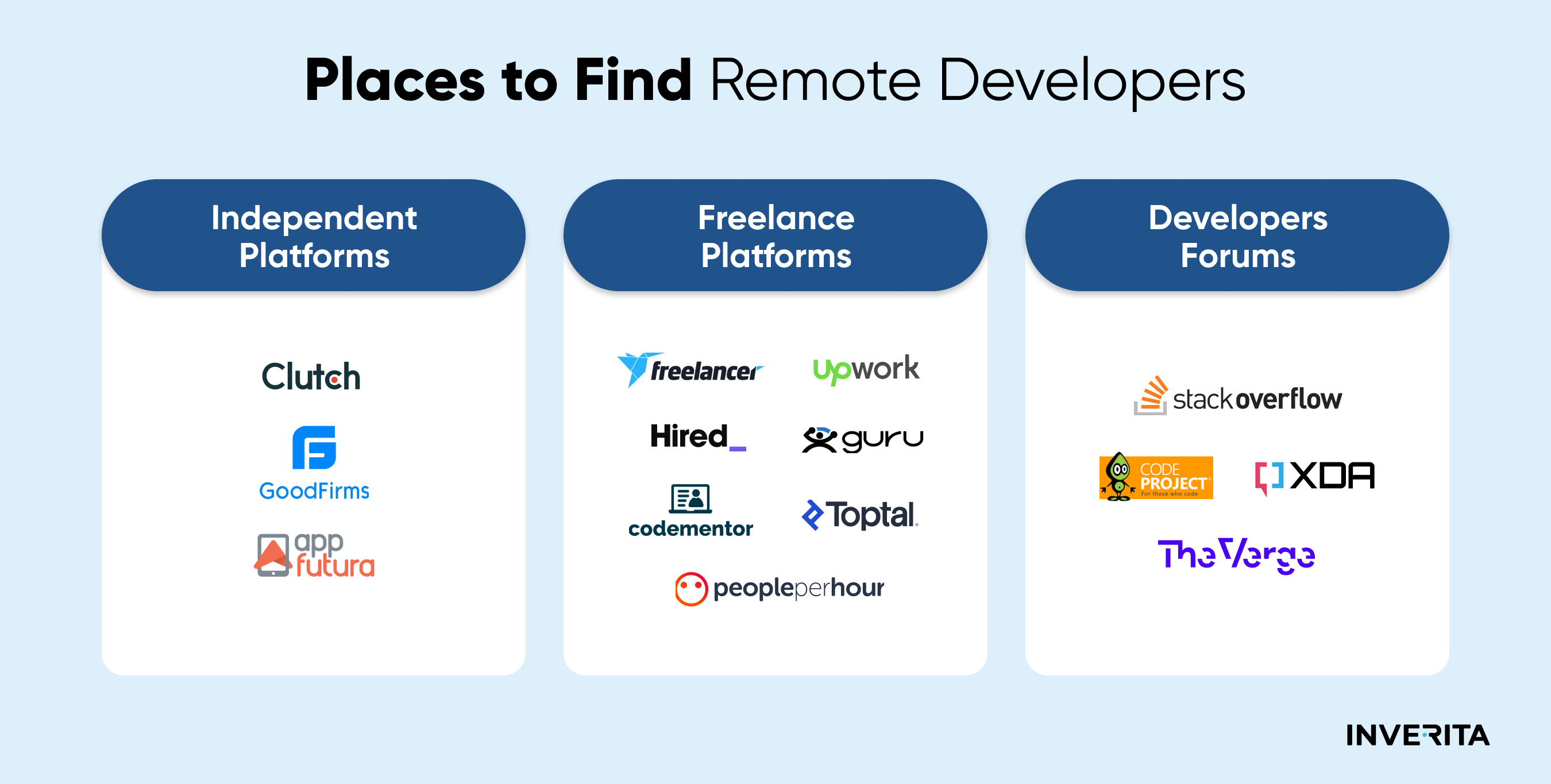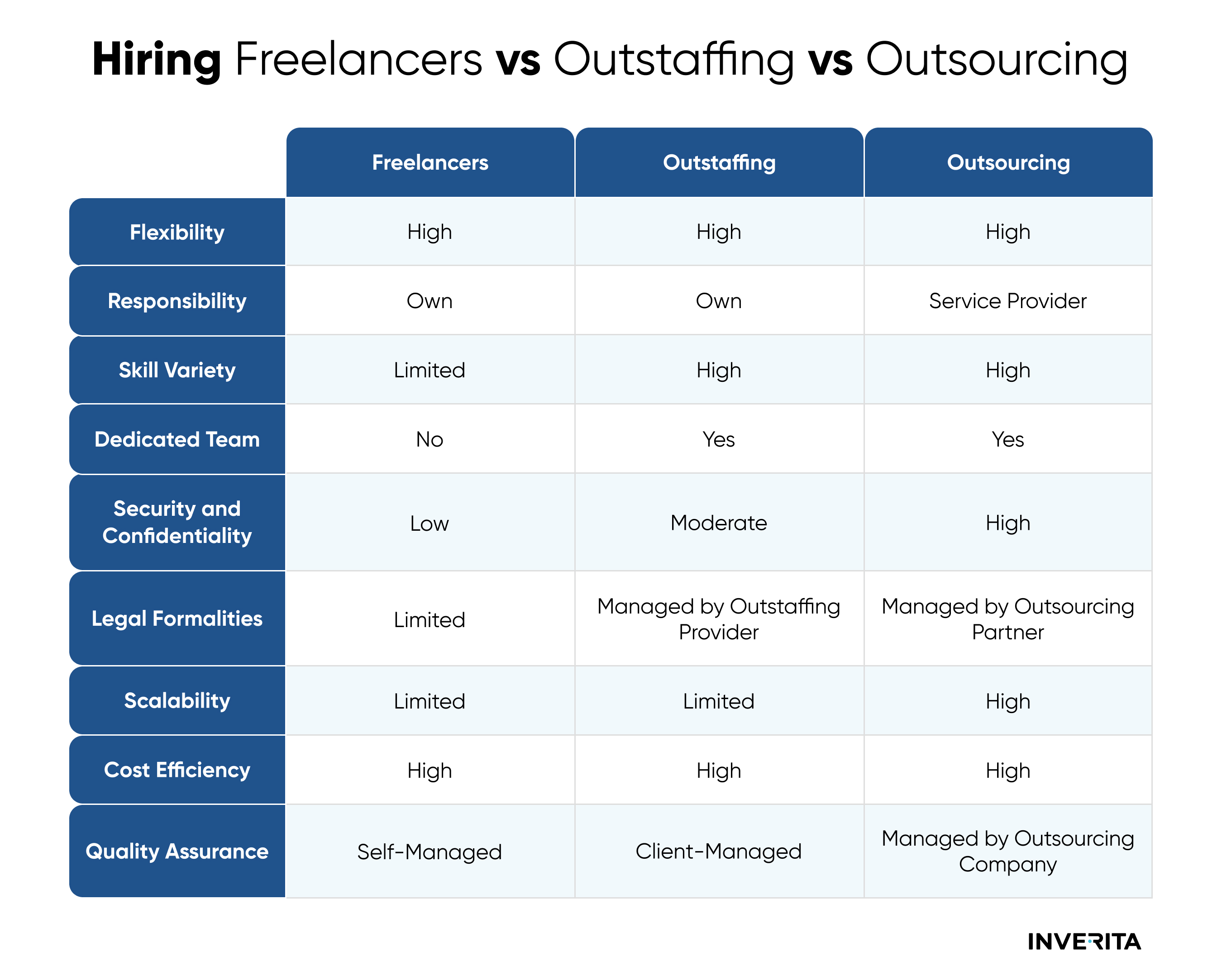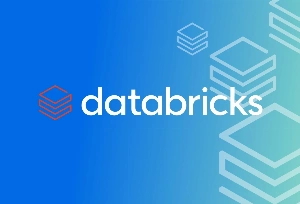#1 Personal Recommendation
Yes, it seems as plain as the nose on your face. But surprisingly, people often fail to think about this option. The most trustworthy recommendations come from people who have already hired software developers and can dwell upon the pros and cons of a certain cooperation model as well as recommend where to find software developers. If you personally know any CTOs or tech talent, they can also give constructive piece of advice.
#2 Developer Forums
Developers forums are a second home for software engineers who are eager to continuously upgrade their skills. And it’s a talent pool for hunters who are looking for software developers. The only difficulty is that each community has its own set of rules, therefore, getting into it might be time-consuming. But in case you succeed you may find a developer you were looking for, or someone will recommend them to you.
#3 Developer Conferences
Every relatively big city hosts some developer conferences and tech meetups. It’s a perfect place to show your interest and make some useful connections. Even if presented developers aren’t currently looking for job opportunities, they will definitely appreciate your time and effort and recommend someone. The rule of thumb is that an A-level developer will recommend only an A-level developer. So, that may be your lucky ticket.
#4 Freelance Platforms
If you’re looking for freelance developers, visiting some freelance websites might be the best option to choose. On such popular platforms, you can learn about their experience, and look through the portfolio of potential candidates and the list of clients. Though whether it’s real or not remains a secret.
The disadvantage of such platforms is that personalities and reviews don’t get verified, so literally, anyone can claim to be a developer there. If you still want to have a try, here are some platforms to check: Freelancer, Toptal, Hired, Codementor, Guru, Upwork, and PeoplePerHour.
#5 Outsourcing Companies
In the case of choosing an outsourcing company, you don’t have to think of how to find software developers as your vendor will compile the team of developers according to your demands. Therefore, the only challenge you face is finding an outsourcing vendor. Clutch, GoodFirms, and Appfutura are independent platforms that give a list of the best software development companies, including general information about the company, its portfolio, and verified client reviews.
#6 Job Platforms
You can also search for candidates and publish job postings on global job platforms such as LinkedIn, Indeed, Remote OK, and Remote.co. When creating a job posting remember to write it consistently and indicate all major requirements for the candidate.
What should you take into consideration when deciding on the remote development team?
- Technology expertise. Choose candidates with the most suitable core technology stack.
- Success stories. Reviewing the company’s or freelancer’s previous projects you can understand what technologies they operate best, what industries they’ve worked with, and what size of projects they are interested in.
- Recognitions. Companies such as Clutch and GoodFirms provide rewards for companies that have been successful and have positive feedback.
- Cooperation. Different projects and budgets require different ways of cooperation. Familiarizing yourself with this aspect will also help you along the way.
A Step-by-Step Process on How to Hire Remote Developers
Having access to the best talent in the world, you need to find and hire remote developers who will meet the exclusive requirements of your company and match your price and quality expectations. So, how to hire remote developers? Follow these steps to choose the best candidate.
Define Development Needs and Priorities
Defining your development needs and priorities is a foundational step to hire remote software developers. Start by clearly outlining the specific goals of your project, including the features, functionalities, and technical requirements you need. Prioritize these elements based on their importance to your project's success. Consider factors such as security, scalability, user experience, and integration capabilities. Understanding your development needs in detail will not only guide your search for talented developers but also ensure that they align with your project's objectives. By having a well-defined set of priorities, you can effectively communicate your expectations to potential developers and make informed decisions during the selection process.
Define the Needed Technical Knowledge
When hiring remote developers defining the required technical knowledge is paramount. The choice of languages, frameworks, and libraries dictates the technical skills your developers should possess.
Frontend development focuses on creating the user-facing part of a website or application, involving layout design, user interface creation, and programming functionalities. Frontend developers employ technologies like HTML, CSS, and JavaScript. They collaborate closely with designers, backend developers, and project managers to ensure a seamless user experience across devices and browsers.
On the other hand, backend development involves building server-side logic, managing databases, implementing business logic, and creating APIs. Backend developers utilize programming languages such as JavaScript, Python, and Java, along with databases like MySQL, MongoDB, and PostgreSQL. Their role is to ensure the proper functioning and security of the website or application. Collaborative efforts with frontend developers, database administrators, and project managers are essential for creating a cohesive and functional application.
Study Customers’ Reviews
When considering outsourcing software developers, evaluating their quality of work through customer reviews is crucial. Start by checking the vendor's website for customer testimonials and case studies, providing insights into their project expertise and client feedback. Explore online review platforms like Clutch, Upwork, and Glassdoor, where clients rate and review developers. Additionally, examine the developer's LinkedIn profile for testimonials and published case studies.
When hiring freelance developers, utilize professional networks such as Upwork, Freelancer, and LinkedIn to find client reviews. Monitor online review sites like Clutch, Glassdoor, and Trustpilot. Evaluate developers' portfolios and case studies to gauge project quality. Reach out to previous clients for direct feedback. Focus on developers with high completion rates, on-time delivery, and positive client feedback, as these indicators reflect their reliability.
Check Soft Skills
When you hire remote developers soft skills are of the same importance as experience and technical skills as you’re not going to meet face-to-face with your remote employees and have full control over their work. Pay attention to these skills:
A qualified developer must not only possess technical expertise but also the ability to convey complex concepts clearly to team members, stakeholders, and clients. Clear communication ensures everyone is on the same page, enhancing project understanding and success.
In the dynamic field of software development, encountering challenges is inevitable. Skilled developers can analyze problems methodically, identify root causes, and implement effective solutions. This ability is crucial for overcoming obstacles and ensuring the smooth progression of projects.
Technology evolves rapidly, and software developers must keep pace with the latest advancements. Being adaptable allows developers to embrace new programming languages, tools, and methodologies, ensuring their skills remain relevant and projects are developed using the most efficient and modern technologies.
Software projects often have strict deadlines. Effective time management is essential for prioritizing tasks, allocating resources efficiently, and ensuring that projects are completed within the specified timeframe. Proper time management also allows developers to balance multiple projects effectively without compromising quality or delivery schedules.
Developers frequently collaborate with fellow team members, designers, project managers, and clients. The capability to work cohesively within diverse remote teams fosters creativity, innovation, and the development of robust solutions.
Even the smallest oversight can lead to critical issues, emphasizing the significance of a keen eye for detail.
Some Tips from inVerita
Here are some tips on how to hire remote developers.
#1 Take Time Difference and Language Barriers Seriously
When you decide to cooperate with a software developer from some distant country, be ready that their mentality may differ a lot from yours. How can it be dangerous for the project? Communication failure, ignoring your vision, not following deadlines, etc.
Therefore, a good idea is to learn more about the culture of your future partner, check their English level, and estimate if there are any coinciding hours during your working shifts to arrange the meetings.
#2 Don’t be Tempted to Pay the Lowest Price
When you have chosen remote talent over a house team you have already saved a lot. Don’t try to get software development for free. Hiring a person with doubtful expertise and no security guarantees can not only lead to a project failure but also bring you much more losses in terms of money and the security of your data.
#3 Choose the Cooperation Model Wisely
Depending on if you are looking for long-term cooperation or just need to fill in some gaps in your project, you can choose between hiring freelance developers or signing a contract with an outsourcing company.
Here is a table of comparison of possible cooperation models.




